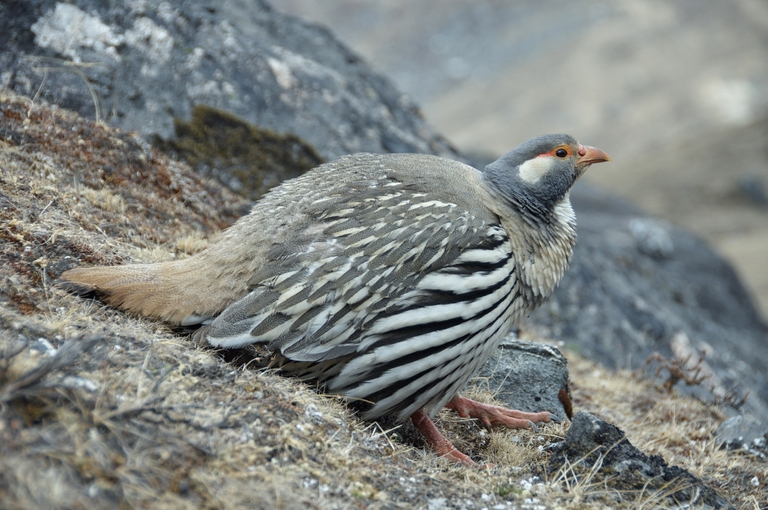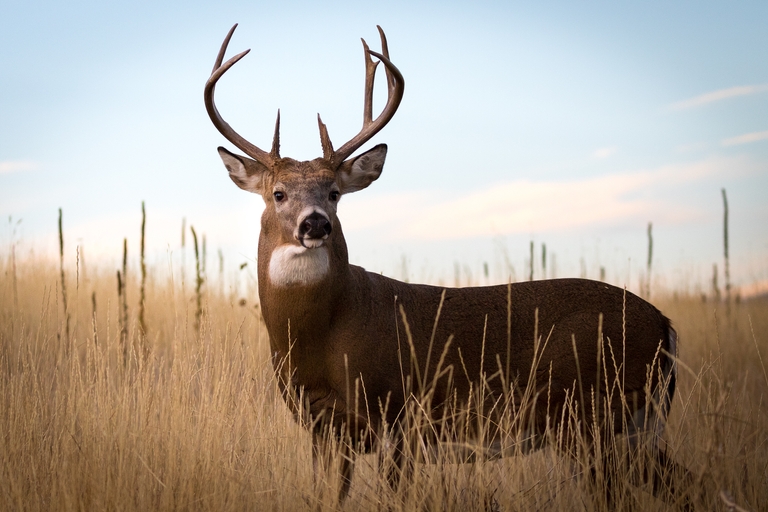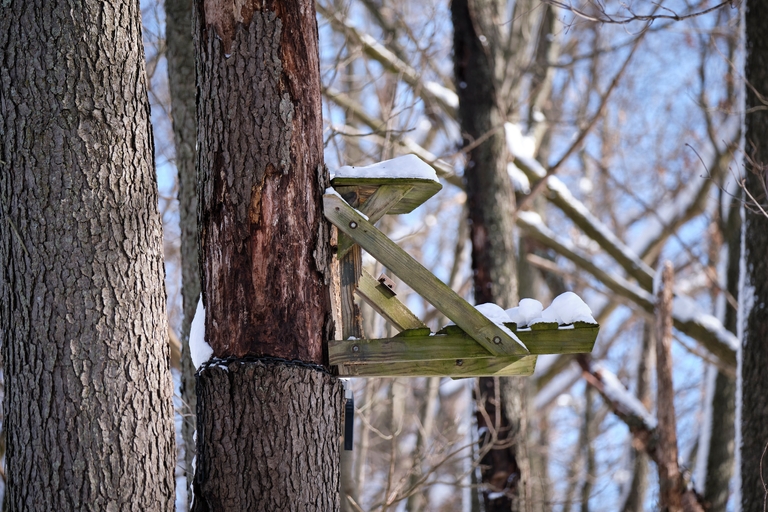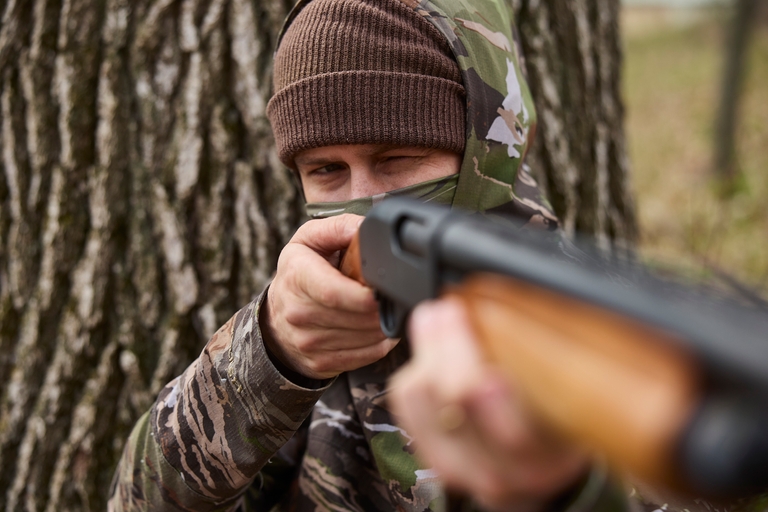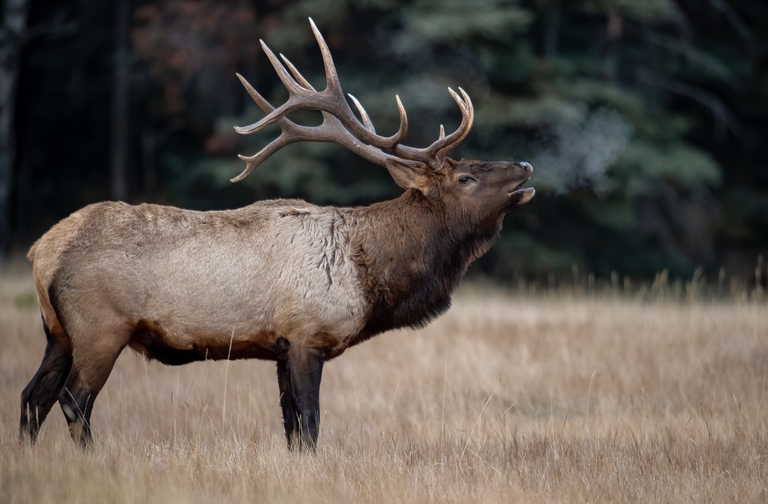Are Wild Hogs Dangerous? Here's What Hunters Should Know
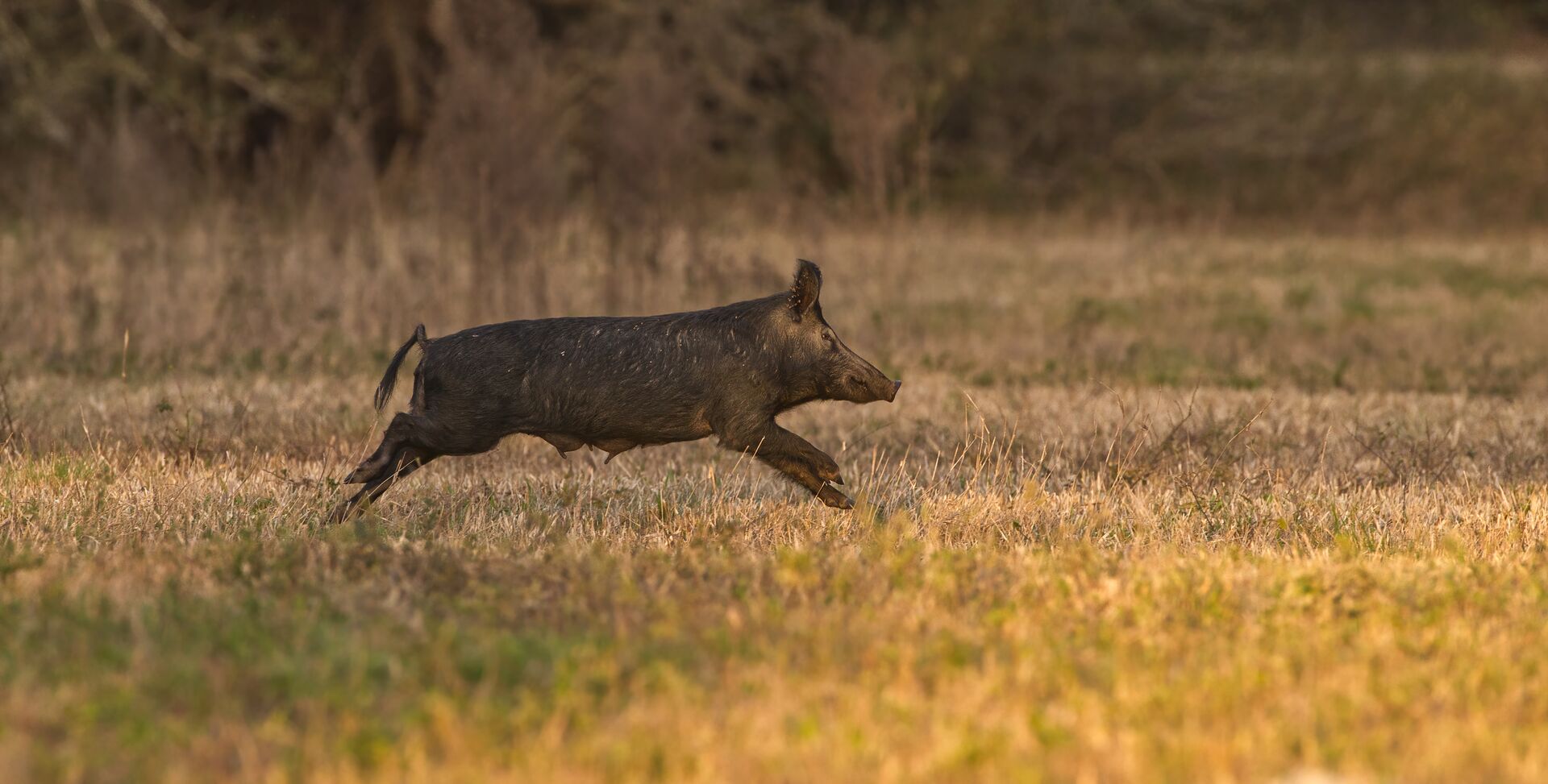
Yes, wild hogs are dangerous! They are a very challenging species to hunt. While they offer excitement, they also pose a danger to hunters due to their aggressive nature and strength.
Understanding the risks and how to mitigate them is important if you want a safe and successful hog hunt. Whether you're an experienced hunter or new to hog hunting, let's look at the potential dangers of hog hunting and how to stay safe in the woods.
Updated February 17, 2026
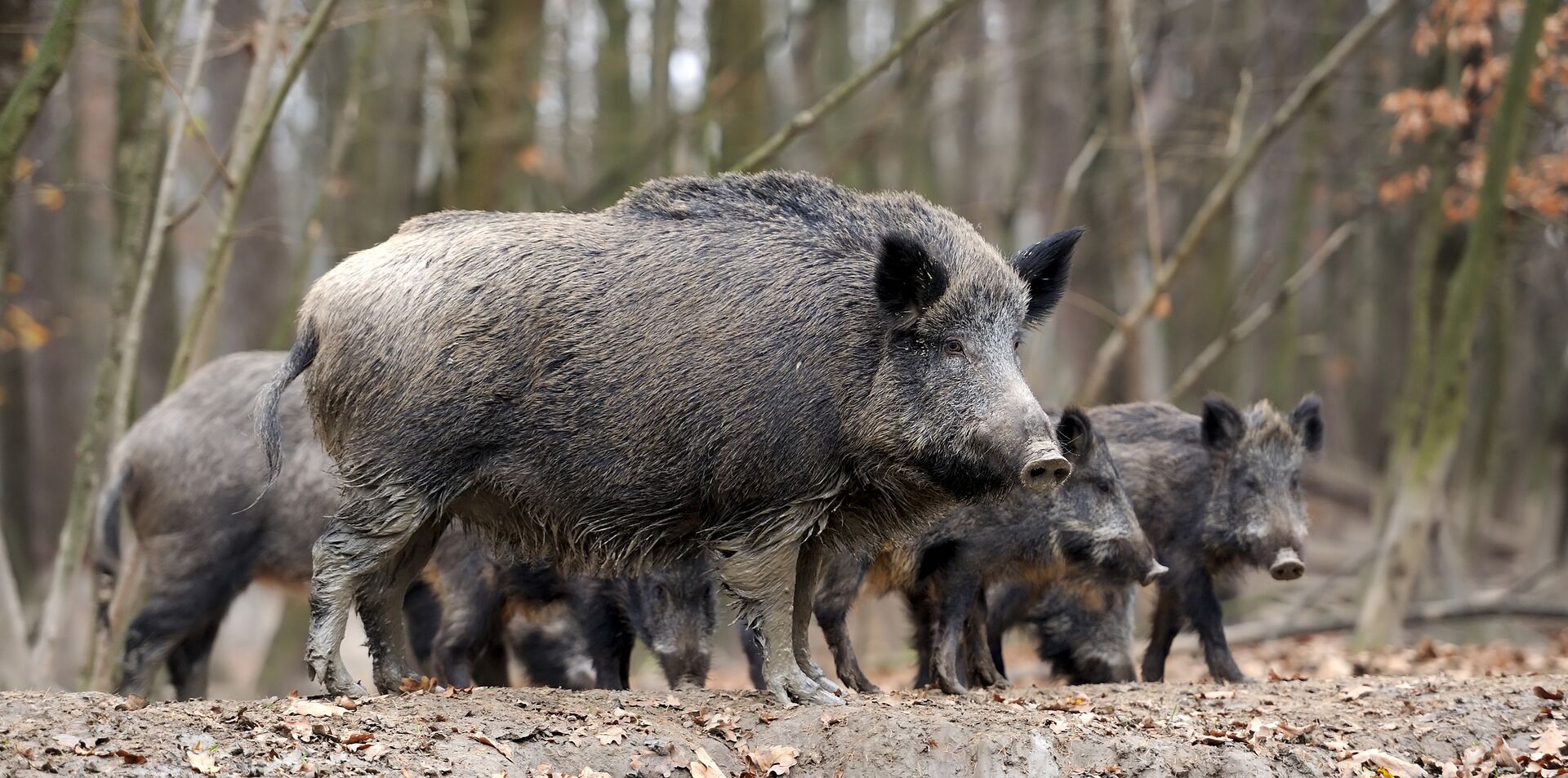
Why Wild Hogs Are Dangerous
Wild hog behavior and aggressiveness are two key factors that make them extremely dangerous animals.
They are also unpredictable. They're known for being dangerous when threatened. Their instinct to defend themselves or their territory makes them a problem in certain situations.
These animals are known for sudden and aggressive reactions. But why are hogs aggressive? When cornered or startled, they can attack unexpectedly, making them one of the more dangerous North American game animals.
Sows with piglets are particularly hard to deal with. They are highly protective of their young and will charge if they perceive a threat to their litter.
Additionally, boars can be highly territorial. If older males sense their space is being encroached, they may charge to defend it.
Wild Hogs Also Carry Disease Risks
In addition to their unpredictable behavior, wild hogs carry diseases and parasites that are dangerous to humans and pets (or hunting dogs). These risks include pseudorabies, brucellosis, trichinellosis, leptospirosis, and toxoplasmosis.
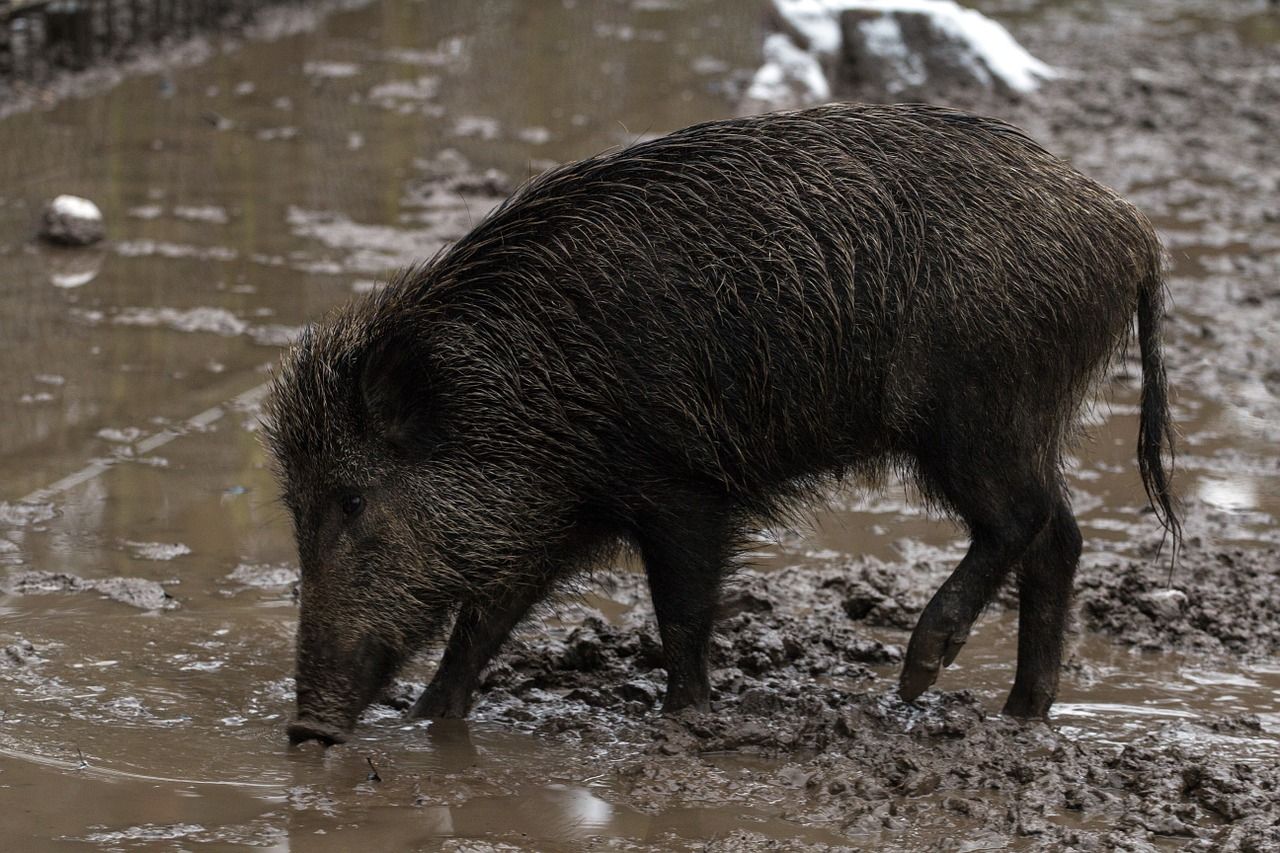
Coming into contact with infected meat or contaminated water sources (like letting your hunting dog drink from water near hog activity) can lead to illness.
To help prevent the risk of coming into contact with one of these diseases, wear gloves and other protective gear when field dressing hogs. Avoid contact with open cuts or wounds, and wash your hands thoroughly afterward. Additionally, clean your tools and hunting gear with disinfectants to minimize contamination risks.
What Are the Physical Threats from Wild Hogs?
Wild hogs have physical traits that make them difficult to hunt and dangerous to encounter.
A few of these traits include:
- Sharp Tusks: Male hogs, known as boars, possess razor-sharp tusks that can inflict severe injuries. These tusks are their primary defense mechanism, capable of easily cutting through skin and muscle.
- Surprising Strength: Hogs are muscular animals weighing up to several hundred pounds. Their strength and the ability to reach 30 mph make evading a charging hog harder than you think.
- Charging Behavior: Wild hogs are known to charge directly at perceived threats.
These behaviors, combined with their tusks and body weight, can lead to significant injuries if hunters are not prepared.
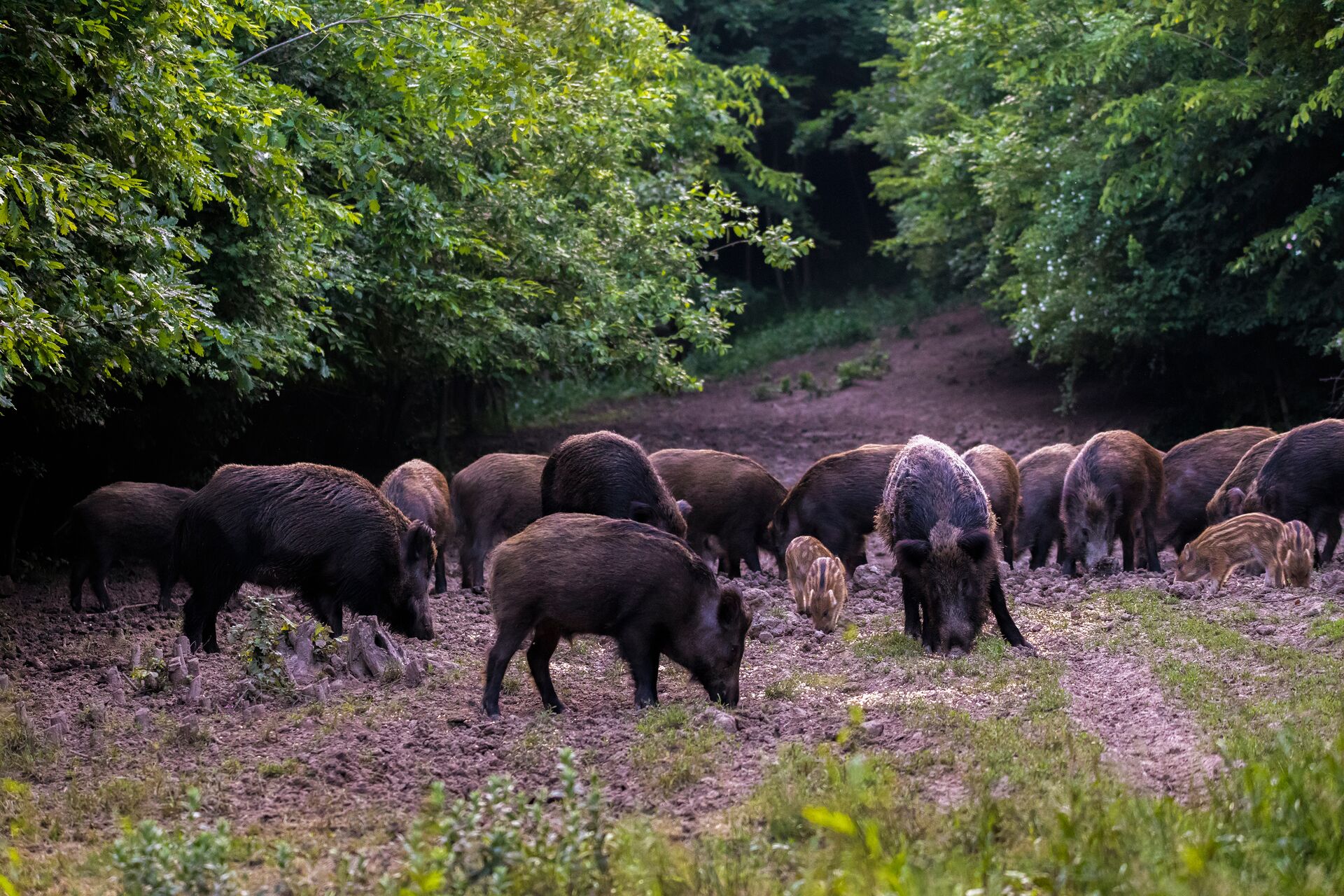

Situations That Increase Danger for Hunters
What can lead to wild hog attacks? Certain situations will increase the risk of aggressive behavior.
Recognizing the following situations can make a difference and help you avoid a dangerous encounter:
- Wounded Hogs: Injured hogs are particularly dangerous. An injured hog is more likely to charge, driven by pain and adrenaline.
- Cornering or Surprise Encounters: Hogs that feel cornered in dense brush or are surprised by hunters often react aggressively. Avoid approaching hogs too closely, especially in areas with limited visibility.
- Feeding Times and Limited Visibility: Early morning and late evening hunts are the expected times for hog activity. They present additional risks due to low visibility.
Hunters can greatly reduce the risk of injury or aggressive encounters by staying alert and understanding hog behavior.
Safety Measures for Hunters
Hunting wild hogs requires a thoughtful approach. Preparation and a safe approach are essential to avoid injury.
Here are a few things to keep in mind when hog hunting:
- Be Aware of Your Surroundings: Always maintain situational awareness, especially in dense brush or unfamiliar terrain. Knowing your potential escape routes will be a game-changer if the hog charges unexpectedly.
- Carry a Sidearm: A reliable sidearm can be invaluable in close encounters. Many hunters carry a handgun for quick defense, particularly in areas with limited visibility or high hog activity.
- Use Elevated Stands: Hunting from an elevated position, such as a tree stand, minimizes the risk of face-to-face encounters. Treestands are ideal in areas that allow hunting over bait for hogs.
- Avoid Close Proximity: Even calm-seeming hogs can become aggressive quickly.
Always maintain a safe distance and prioritize your safety over getting closer for a better shot. Also, make sure you follow the rules and regulations in the area where you plan to hunt. Rules help keep you safe!
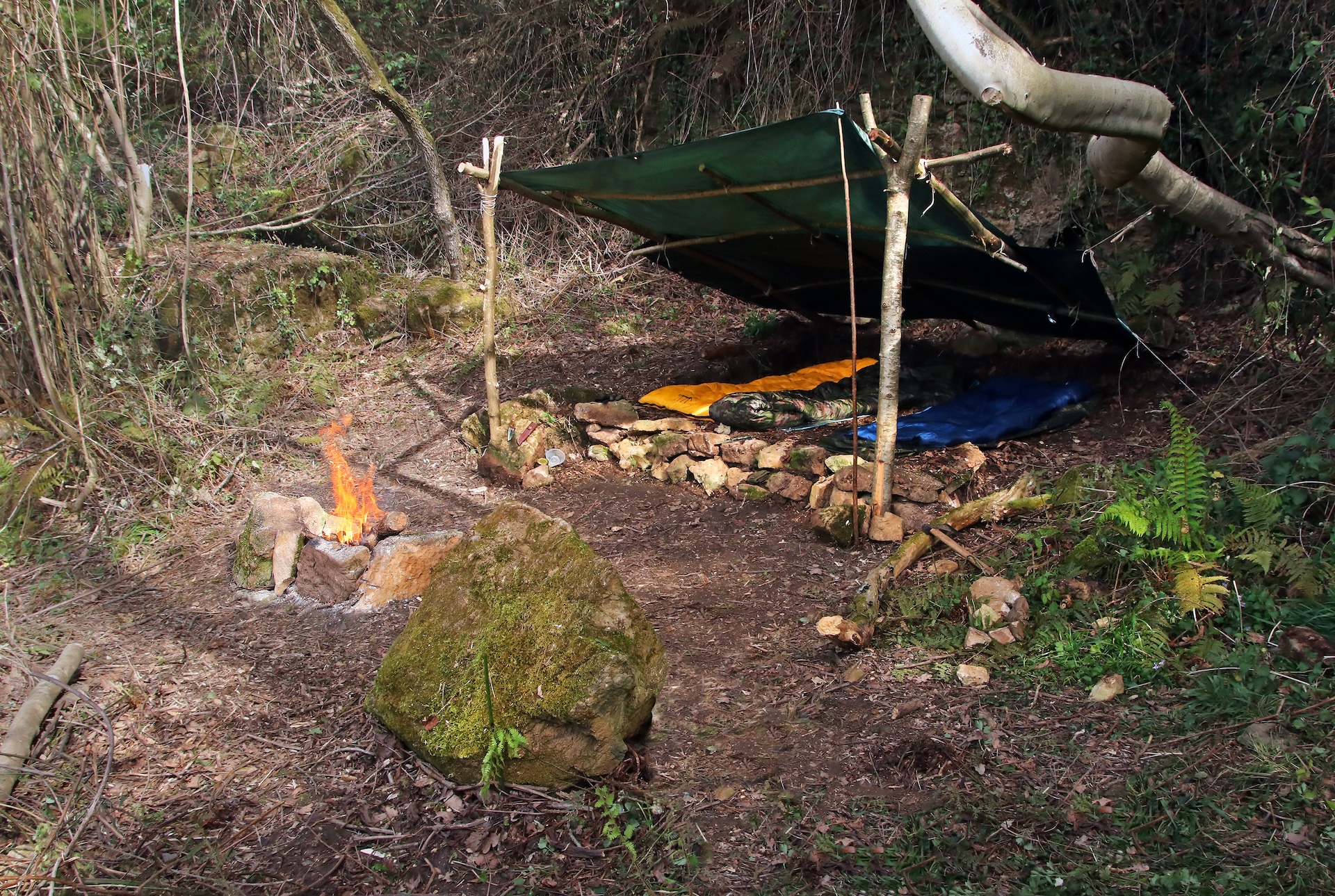
How to Deter Wild Hogs In Your Camp
When you’re hunting hogs, keeping them out of your hunting camp isn’t just about convenience; it’s about safety and protecting your gear. A few smart habits go a long way.
Choose Your Site Wisely
Don’t set up near water sources, muddy wallows, or fresh rooting. If the ground looks plowed up or you see tracks and droppings, move on. You don’t want to camp on the hogs' nightly travel route.
Keep a Clean Camp
Wild hogs have an incredible sense of smell, so make sure they can't smell any food that could lure them into your camp. If it smells like food, they’ll investigate.
Store all food in sealed containers or bear-proof boxes. Police your cooking area before dark. Dispose of trash daily, and never leave scraps, grease, or game remains out overnight.
Use Scent and Sound Deterrents
Hogs don’t like strong, unfamiliar smells. Ammonia- or vinegar-soaked rags placed around the perimeter can help keep them away.
Strong-smelling soaps, motion-activated lights, or small alarms add another layer of deterrence. Even a portable radio playing softly through the night can make them uneasy enough to stay clear.
Create Visible Barriers
You don’t need a fortress, but you do want to signal human presence.
Rope lights, reflective tape, or lightweight temporary fencing can discourage curious hogs from wandering in. And if you’ve got dogs or livestock, make sure they’re securely enclosed at night. Loose animals can trigger unwanted encounters.
A little prevention beats dealing with a 200-pound boar in your cook area at 2 a.m. Stay smart and stay ready.
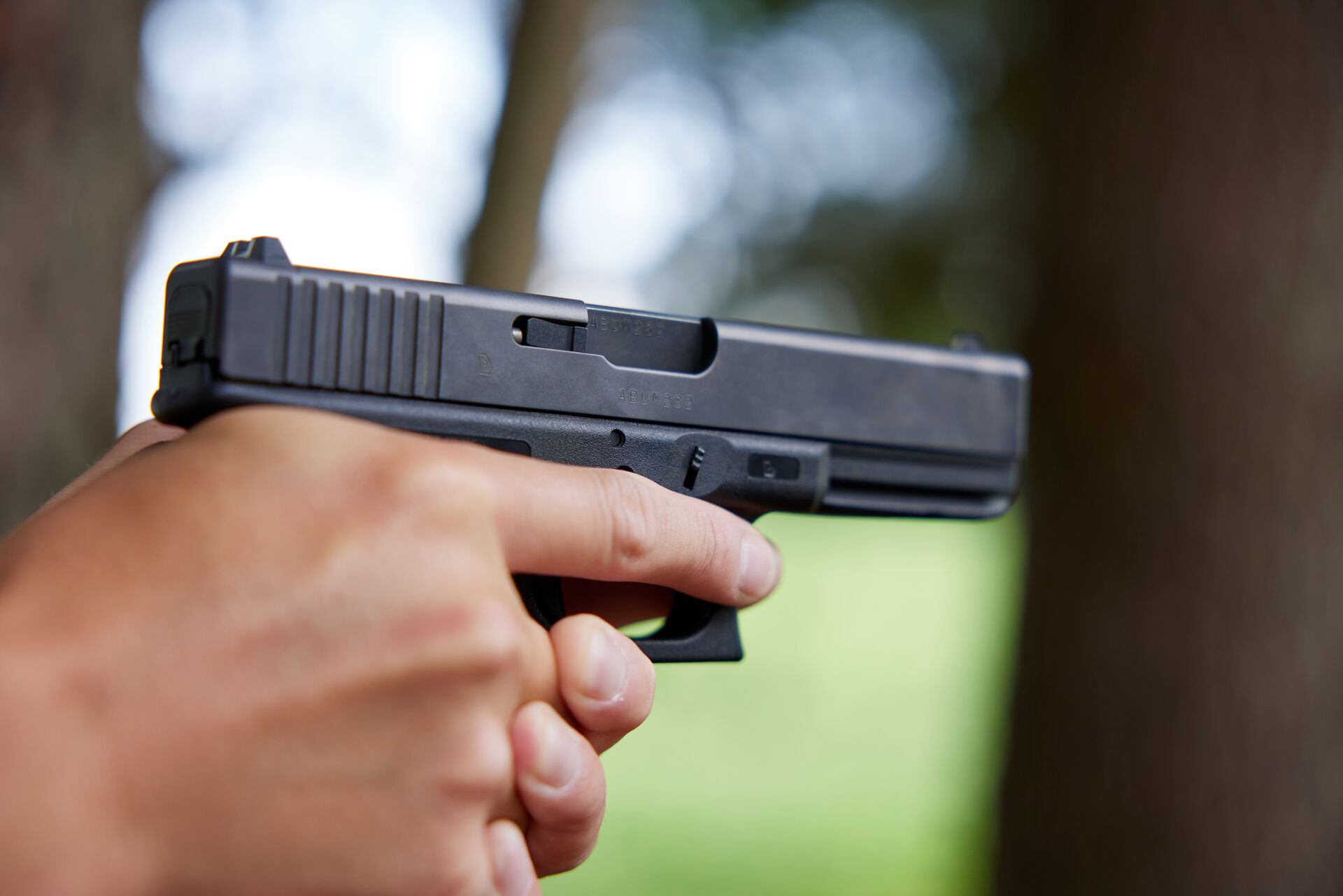
First Aid and Emergency Preparedness
Despite your best efforts, accidents can happen. Have a plan and carry the right things to be ready for emergencies.
Understanding how to treat injuries, particularly tusk wounds, is vital. Keep a first aid kit in your hunting pack, stocked with supplies like bandages, antiseptic, and wound closure strips.
Carry a mobile phone, satellite communicator, or two-way radio to call for help if needed. Always be sure your device is fully charged before going into the woods.
Lastly, having a partner provides an extra layer of safety. Your partner can call for help or provide immediate assistance when you are injured.
Hunt Responsibly
Hunting wild hogs is an exciting and rewarding challenge, but it comes with serious responsibilities.
- Understanding the Risks: Wild hogs are intelligent and unpredictable animals. Know that, and be careful.
- Respect the Animal: Ethical hunting practices benefit the hunter and the environment. It helps you stay safe and is the right thing to do.
Following safe and responsible hunting practices reduces risks and helps keep populations in check.
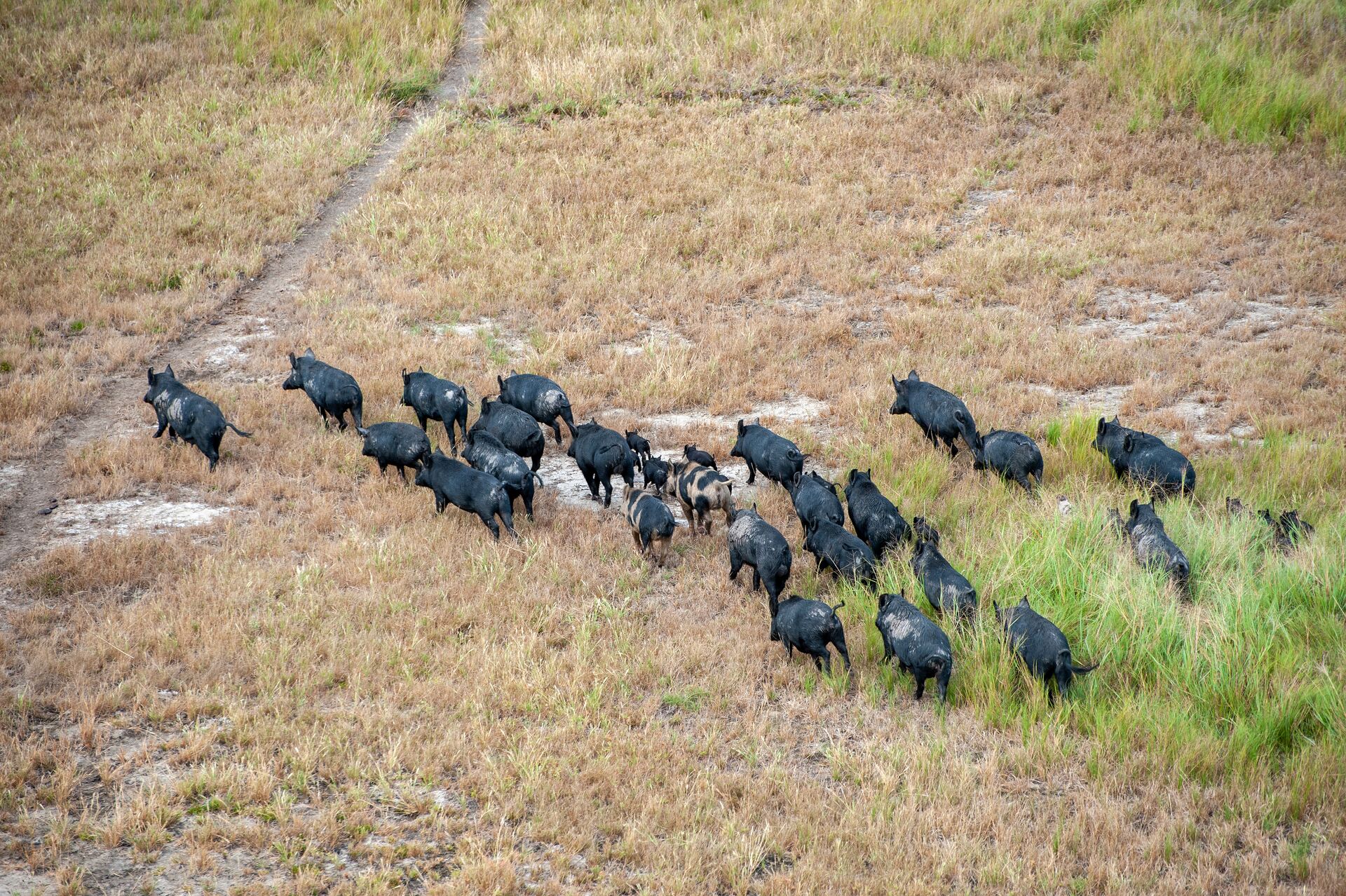
Stay Safe (and Legal) in the Field with Hunter Education
Wild hogs are challenging and rewarding animals to hunt. The opportunity to test your skills and the excitement is unmatched. Their unpredictable nature and potential for aggression must be respected, though.
Understanding their behavior, preparing for emergencies, and sticking to safe practices are the keys to any hog hunt.
What's the best way to prepare your safety in the field, whether you hunt hogs or any other species? Take a hunter safety course through Hunter-Ed to enhance your hunting skills and learn to hunt all species safely. Our online courses provide the tools and insights to help you hunt responsibly and confidently.
Plus, we make it fun to learn and comply with the hunter education requirements for your state.

Content most recently reviewed and updated February 17, 2026.
Frequently Asked Questions (FAQs)
We have answers to questions, including are wild hogs dangerous?
Q: How dangerous is it to hunt wild boar?
A: It can be very dangerous to hunt wild boar. These animals (also called feral hogs) are strong, fast, and have sharp tusks that can cause serious injuries. Wounded boars are especially unpredictable and may charge. Proper training, protective gear, and experienced hunting practices are essential.
Q: Will a wild boar chase you?
A: Usually, wild boars prefer to run away. However, a cornered, injured, or startled boar (especially a sow protecting piglets) may charge. Charges are typically short and aggressive rather than long chases.
Q: Can you outrun a feral hog?
A: It's not likely that you can outrun a feral hog. These animals can run up to about 30 mph in short bursts, which is faster than most humans. Your best move is to get behind a solid barrier or climb to higher ground if possible.
Q: What state has the worst wild hog problem?
A: Texas is widely considered to have the worst feral hog problem in the U.S., with an estimated population in the millions. Other heavily affected states include Florida and Georgia.


